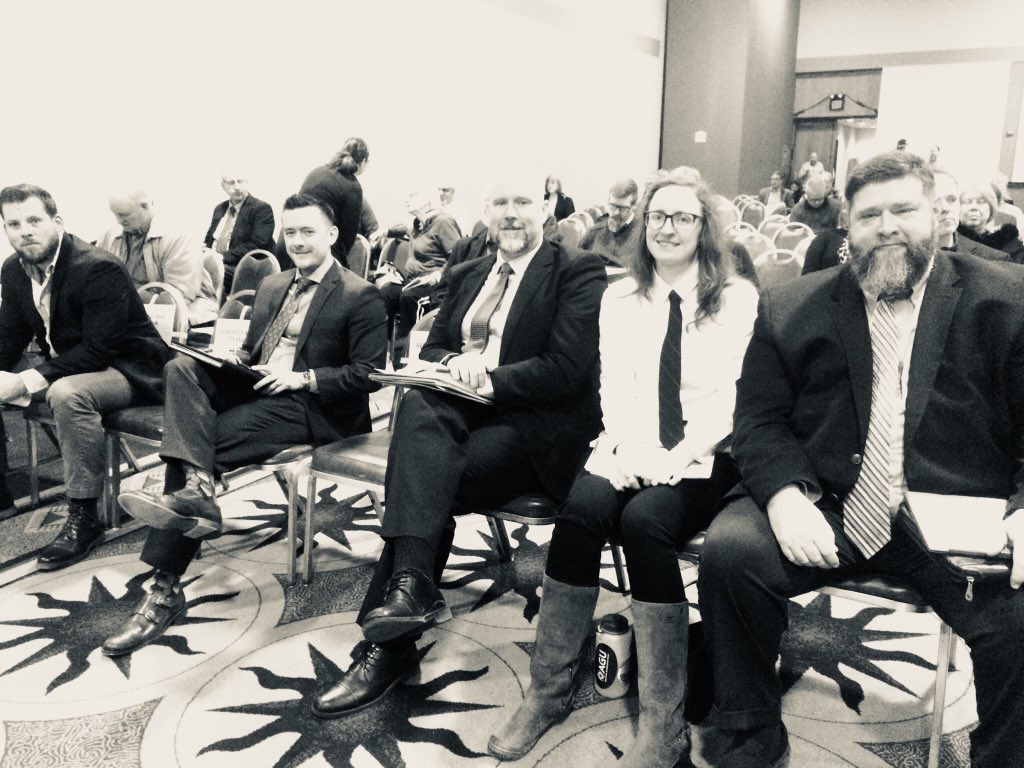|
Today I provided testimony at the public hearing on the new proposed Waters of the US (WOTUS) rule, which rolls back protections for what waters are covered under the Clean Water Act. The public comment period closes on April 15, so be sure to have your voice heard. Details on the proposed rule and how to comment are here. More resources to learn more about WOTUS are listed at the bottom. Here are my remarks from my 3 minute slot:
" Good morning. My name is Bonnie McGill. I have a Ph.D. in ecosystem ecology and biogeochemistry. I am now a David H. Smith Conservation Fellow working on water quality in Iowa, but I’m based in Kansas. My comments today are my own. In addition to Iowa, I have conducted aquatic research across the US and around the world. Clearly I love water and it’s not because I think fish are cute. It’s because I grew up in Appalachia where we could not drink our well water. It’s because I lived in Michigan during the Flint water crisis. It’s because I’ve measured water in the US with nitrate concentrations three or more times the drinking water standard. So I have 2 messages for you today. Message 1: The working poor and rural America especially rely on the Clean Water Act to “restore and maintain the chemical, physical, and biological integrity of the Nation’s waters” as a matter of protecting human health. The proposed 2017 WOTUS rule does not seem to recognize that access to clean water is a lot easier and cheaper if you let nature do the work for you. For example, the US already benefits from free ecosystem services from headwater systems that are worth over $15 trillion per year (Creed et al. 2017) that is not far from the entire US GDP. Even small, non-floodplain wetlands can provide disproportionately large benefits such as nutrient retention and water flow regulation (Marton et al. 2015, Cohen et al. 2016). Case in point, Iowa has lost 90% of its wetlands (NRCS 2005). Artificial drainage has increased in area and density and extreme rainfall events have become more common. It is not a coincidence that Iowa ranks 4thin the nation in number of floods since 1988; these floods have cost Iowans about $18 billion (Eller 2018). Without protections on headwater wetlands and streams, the cost of flood disaster relief will continue to rise. Message 2: Regulations concerning natural resources should be based on peer reviewed science, but the 2017 WOTUS rule is not. For example, the new rule ignores the importance of the cumulative physical, chemical, and biological effects of connectivity to the integrity of downstream systems. It only considers physical connectivity. As a scientist working with surface and groundwaters, I can tell you that determining whether or not surface water is connected to groundwater is far from simple and does not make the rule clearer or more predictable. The 2015 rule protecting any water way with a streambed, banks, or ordinary high water mark is much more simple. To recap: 1) Protecting headwaters is a win for human health and our pocket books. 2) Regulations on natural resources should be based on science not the preferences of industry. Thank you for your time. " Please note: I do also think fish are very cute. RESOURCES The EPA's 2015 Connectivity Report--science based report under the Obama administration, basis of 2015 Clean Water Rule. 18 Feb. 2019 E& E News article by Ariel Wittenberg on the new rule. American Fisheries Society Special Report: Headwater Streams and Wetlands are Critical for Sustaining Fish, Fisheries, and Ecosystem Services Other info on WOTUS from AFS is here. Cohen, M.J., et al. 2016. Do geographically isolated wetlands influence landscape functions? Proceedings of the National Academy of Sciences113(8):1978-1986 https://doi.org/10.1073/pnas.1512650113 Creed, I.F. et al. 2017. Enhancing protection for vulnerable waters. Nature Geoscience 10:809-813. DOI: 10.1038/NGEO3041 https://www.ncbi.nlm.nih.gov/pubmed/30079098 Marton, J.M., et al. 2015. Geographically Isolated Wetlands are Important Biogeochemical Reactors on the Landscape. BioScience65:408-418. https://doi.org/10.1093/biosci/biv009 |
Archives
February 2019
Categories |

 RSS Feed
RSS Feed
